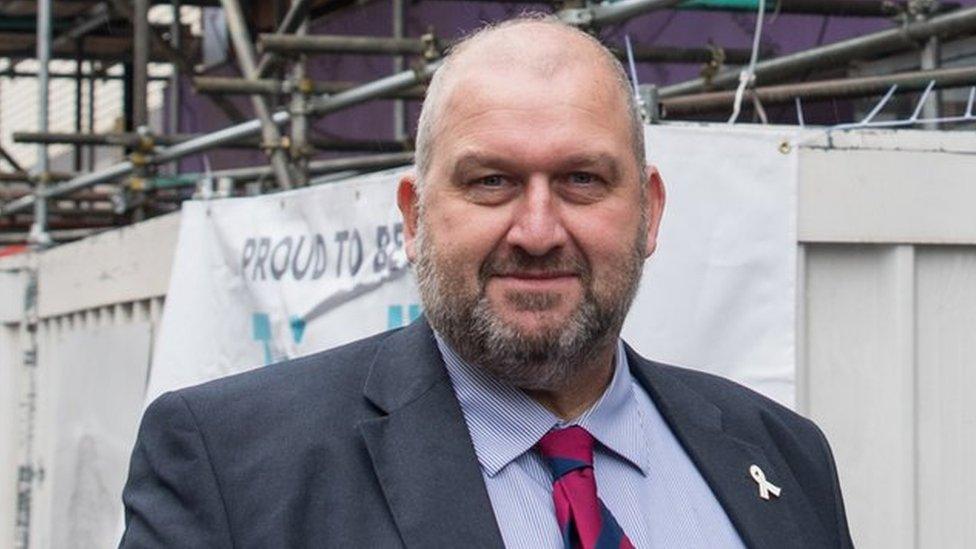Carl Sargeant inquest: Carwyn Jones's challenge rejected
- Published
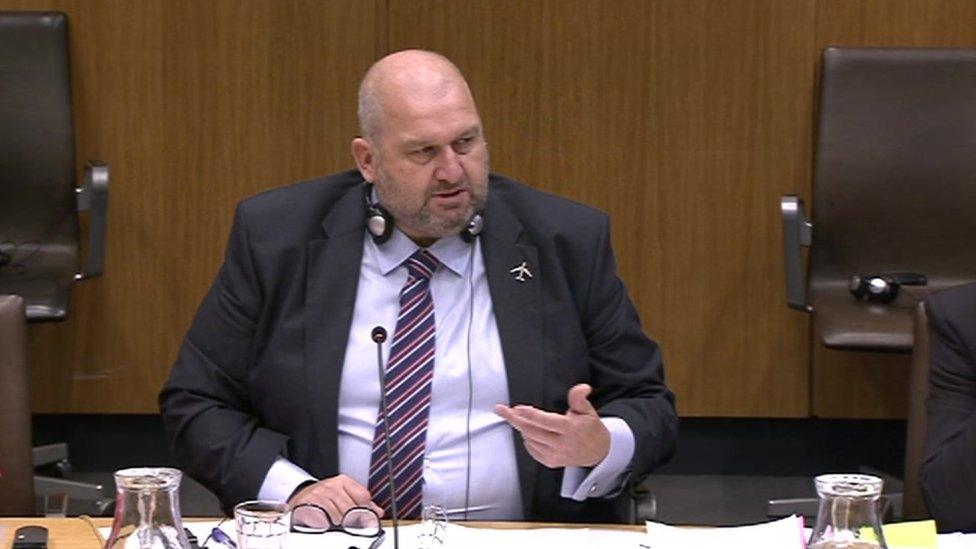
Carl Sargeant was found dead at home after being sacked as a Welsh Government minister
An attempt by former first minister Carwyn Jones to force the coroner in the Carl Sargeant inquest to admit extra evidence has been rejected.
Mr Jones wanted text messages between the ex-leader and deputy leader of Flintshire County Council considered.
The High Court in Cardiff heard the messages contained allegations Mr Sargeant had done something that could have led to a prison sentence.
But Lord Justice Haddon-Cave ruled the coroner had acted correctly.
Mr Sargeant, 49, was found dead at home in Connah's Quay four days after he was sacked as a Welsh Government minister by Mr Jones in November 2017.
He had faced allegations of inappropriate behaviour towards women.
Lord Justice Haddon-Cave said coroner John Gittins had not acted unreasonably by excluding the texts from evidence, describing arguments that they could explain why Mr Sargeant took his own life as "speculation".
The former first minister's lawyers told the High Court the failure to hear evidence from the leader and deputy leader of Flintshire council, Bernie Attridge and Aaron Shotton, whose texts have been kept from the public, meant the inquest was not a "full, fair and fearless investigation".
Cathryn McGahey QC, representing Mr Jones, said: "The coroner has been unduly influenced by the completely understandable wish not to cause distress to the Sargeant family.
"We say Bernie Attridge had highly relevant knowledge about what caused Mr Sargeant to take his own life. He was aware of matters preying on Mr Sargeant's mind.
"We have an exchange between two independent witnesses who know what they are talking about."
Ms McGahey said the inquest would be "incomplete" and "one-sided" if the text messages were not included, adding: "It is unknown, in my experience, for a coroner investigating a suicide not to look at the factors that caused that individual to take his own life."
Ms McGahey also argued the coroner should have admitted statements from two other witnesses who claimed Mr Attridge had contacted them with a view to making a complaint about Carl Sargeant.
The inquest heard that Mr Attridge disputes those accounts. He has declined to comment on Thursday's judgement.
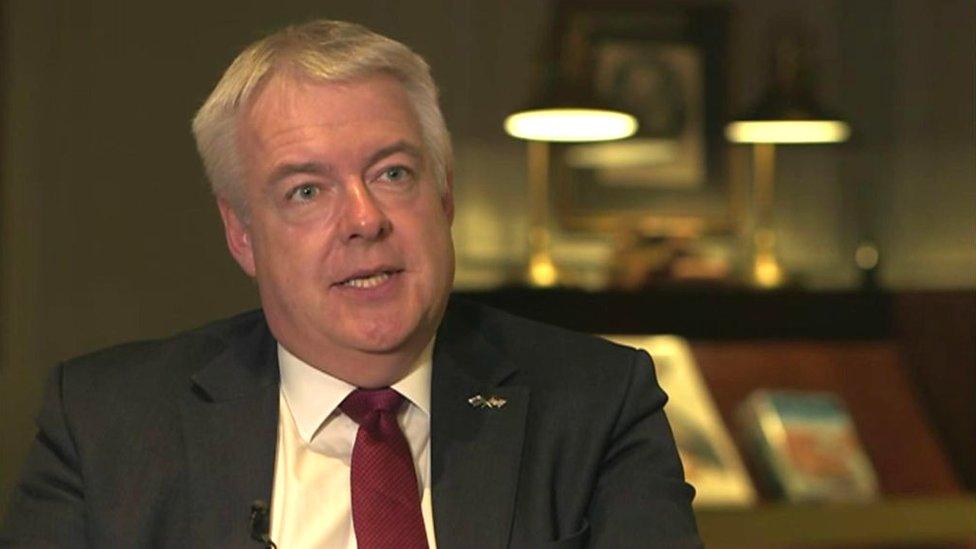
Carwyn Jones challenged the decision to exclude evidence from Aaron Shotton and Bernie Attridge
Sophie Cartwright, for the coroner, argued Mr Gittins "doesn't need to understand why Mr Sargeant did what he did".
She said: "The inquest is a limited fact-finding inquiry to answer four questions: Who, when, where, how."
Lord Justice Haddon-Cave said senior coroner Mr Gittins had acted correctly and "well within his scope of discretion", and the application to have the text messages included was "based on speculation as to what that evidence may or may not show".
"It is indeed unfortunate the bringing of this application may give rise to further unnecessary speculation about this evidence," he added.
"It is not appropriate for courts to intervene on the basis of speculation.
"We have seen nothing to suggest the coroner in this case acted anything other than fairly and in accordance with his statutory duty under Section 5 of the Coroners Act."
Responding to the ruling, Carwyn Jones said: "I note the court's judgement and will discuss the matter further with my lawyers."
A spokesman for the family said they would not be commenting on the ruling.
The inquest is scheduled to resume on 8 July.
- Published5 March 2019

- Published19 January 2019
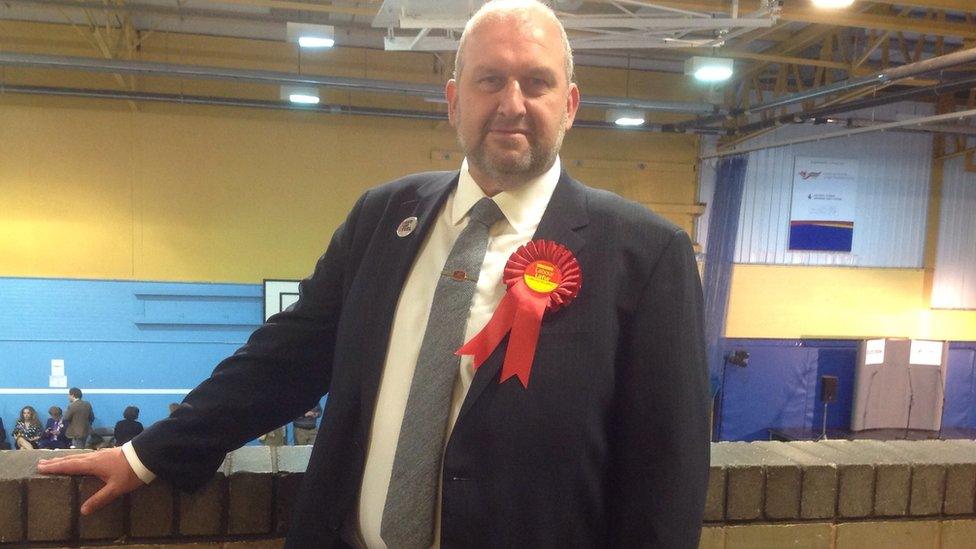
- Published4 April 2019
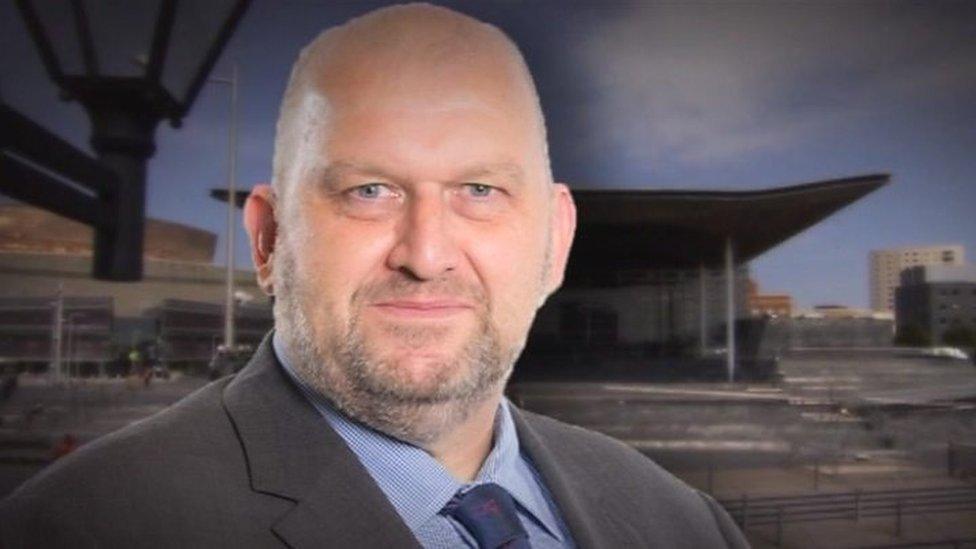
- Published7 November 2017
